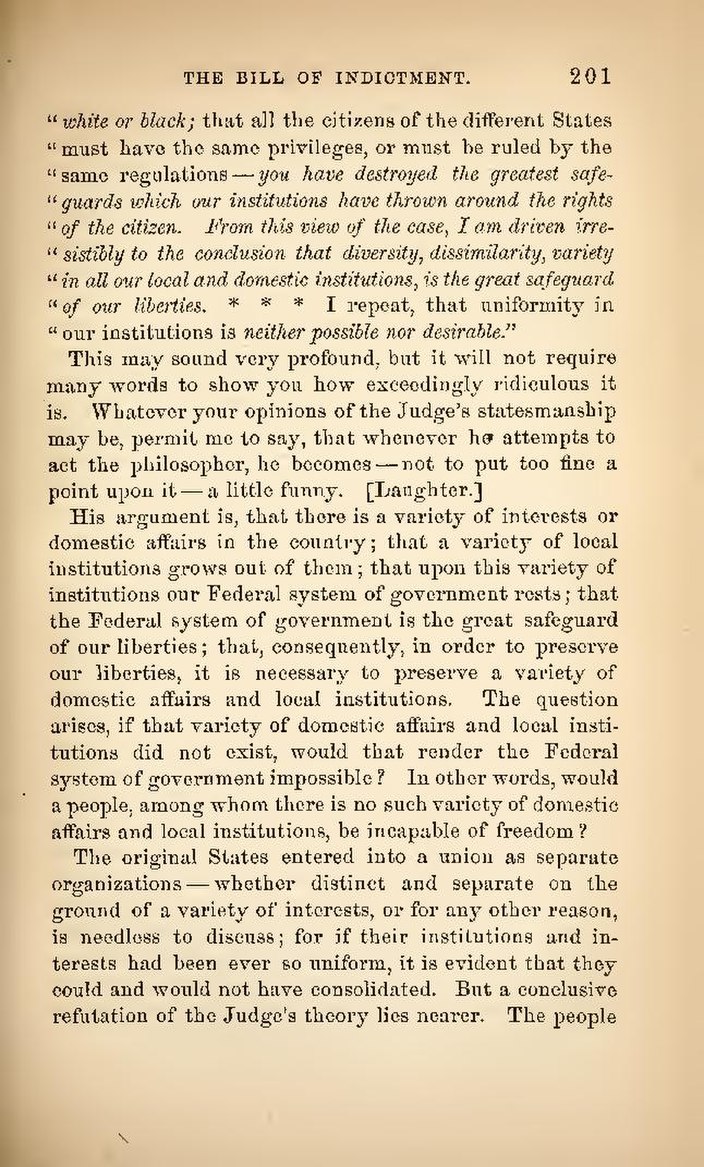white or black; that all the citizens of the different States must have the same privileges, or must be ruled by the same regulations—you have destroyed the greatest safeguards which our institutions have thrown around the rights of the citizen. From this view of the case, I am driven irresistibly to the conclusion that diversity, dissimilarity, variety in all our local and domestic institutions, is the great safeguard of our liberties. * * * I repeat, that uniformity in our institutions is neither possible nor desirable.”
This may sound very profound, but it will not require many words to show you how exceedingly ridiculous it is. Whatever your opinions of the Judge's statesmanship may be, permit me to say, that whenever he attempts to act the philosopher, he becomes—not to put too fine a point upon it—a little funny. [Laughter.]
His argument is, that there is a variety of interests or domestic affairs in the country; that a variety of local institutions grows out of them; that upon this variety of institutions our Federal system of government rests; that the Federal system of government is the great safeguard of our liberties; that, consequently, in order to preserve our liberties, it is necessary to preserve a variety of domestic affairs and local institutions. The question arises, if that variety of domestic affairs and local institutions did not exist, would that render the Federal system of government impossible? In other words, would a people, among whom there is no such variety of domestic affairs and local institutions, be incapable of freedom?
The original States entered into a union as separate organizations—whether distinct and separate on the ground of a variety of interests, or for any other reason, is needless to discuss; for if their institutions and interests had been ever so uniform, it is evident that they could and would not have consolidated. But a conclusive refutation of the Judge's theory lies nearer. The people
